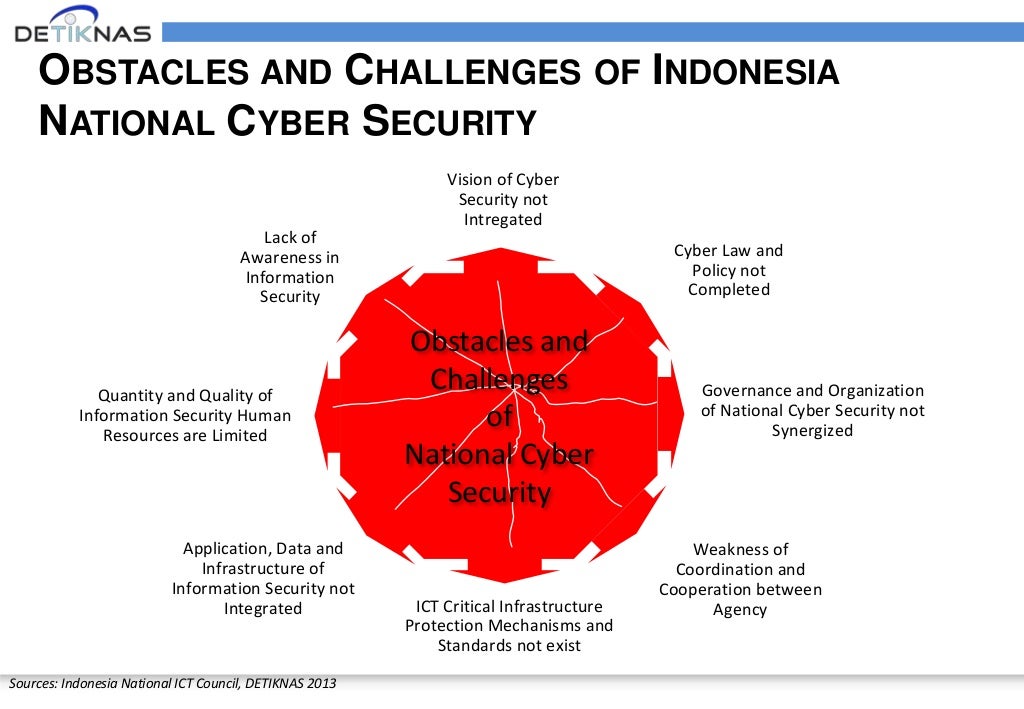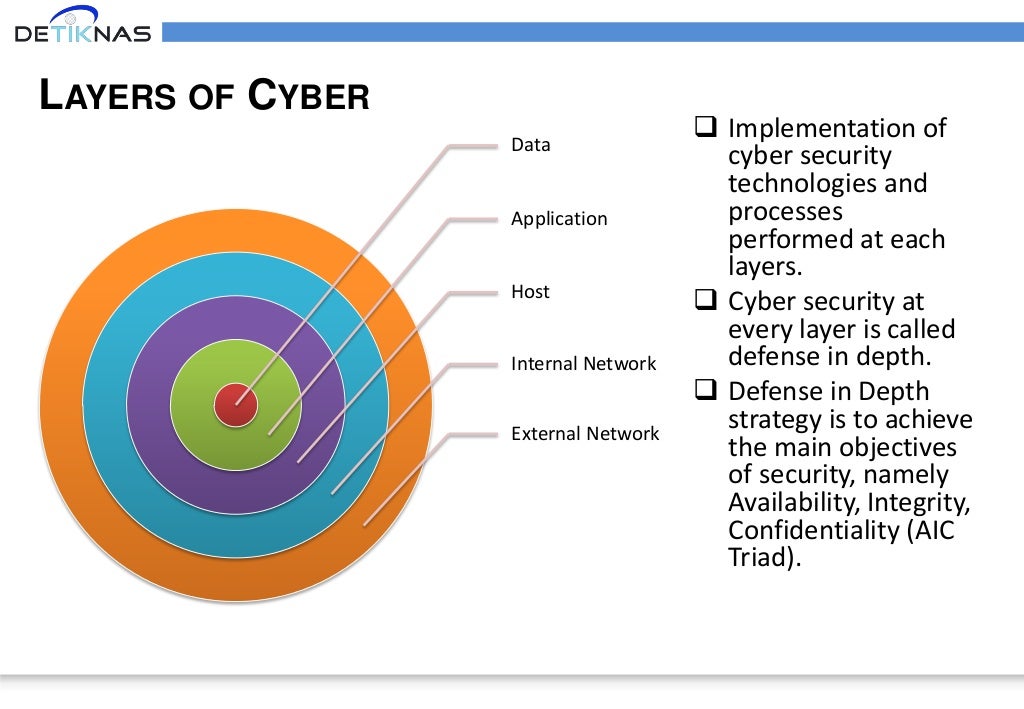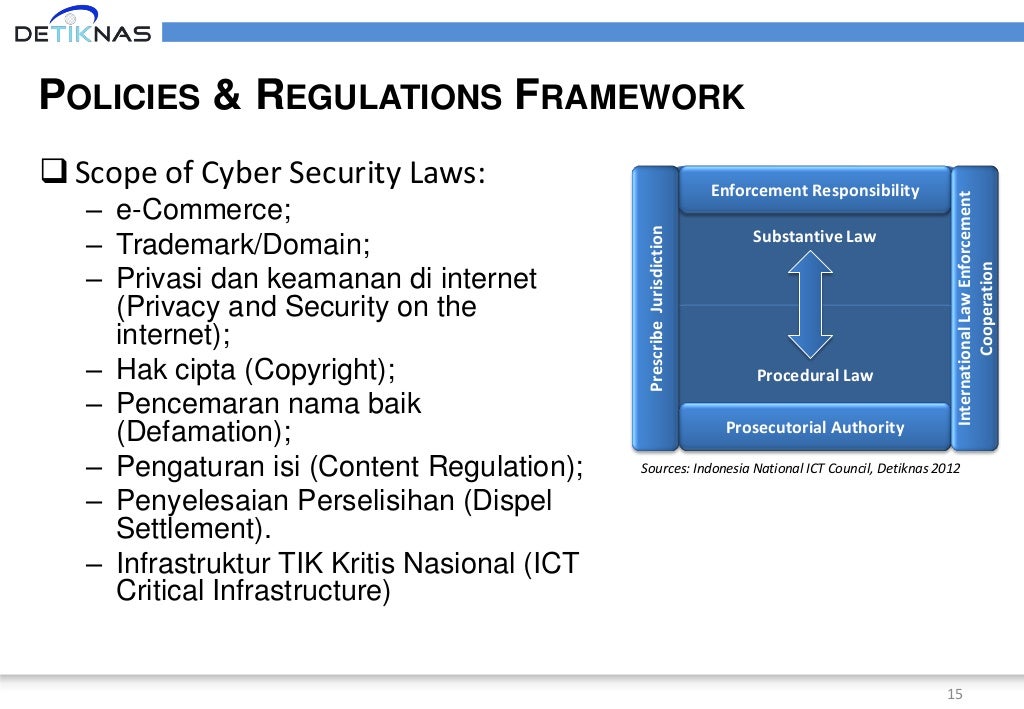Strategi Keamanan Siber Indonesia: Enhancing Cyber Security for a Safer Nation dives into the crucial topic of cyber security in Indonesia, shedding light on its importance and current state within the country. This engaging article explores government initiatives, challenges faced, best practices for individuals and organizations, and future trends and developments in cyber security.
Join us on this informative journey to discover how Indonesia is tackling cyber threats head-on.
Overview of Cyber Security in Indonesia
Cyber security plays a crucial role in Indonesia’s digital landscape. As the country continues to undergo rapid digital transformation, the protection of its digital infrastructure, data, and privacy becomes increasingly important. Cyber security aims to safeguard individuals, organizations, and the nation as a whole from cyber threats such as hacking, identity theft, data breaches, and cyber attacks.
The Current State of Cyber Security in Indonesia
Indonesia faces numerous challenges in the realm of cyber security. The country has witnessed a significant rise in cyber attacks in recent years, targeting both government agencies and private sectors. These attacks range from phishing scams and malware infections to more sophisticated methods like advanced persistent threats (APTs) and ransomware attacks.One
of the major concerns is the lack of awareness among individuals and organizations regarding cyber security best practices. Many users are unaware of the risks associated with sharing personal information online or using weak passwords, making them vulnerable to cyber attacks.
Additionally, there is a shortage of skilled professionals in the field of cyber security, hindering the development of robust defense mechanisms.
Cybersecurity is becoming increasingly assured with the presence of information technology. With the advancements in technology, the protection of our digital assets has become more reliable and secure. The integration of IT and cybersecurity has revolutionized the way we safeguard our data and systems.
The link keamanan siber menjadi semakin terjamin dengan adanya iptek provides further insights into how technology has played a vital role in enhancing cybersecurity.
Cyber Security Threats Faced by Indonesia
Indonesia encounters a variety of cyber security threats that pose risks to its digital ecosystem. One prominent threat is phishing, where attackers use deceptive emails or websites to trick individuals into divulging sensitive information. Another prevalent threat is malware, which can infect systems and steal data or disrupt operations.Ransomware
attacks have also become more prevalent in Indonesia, targeting both individuals and organizations. These attacks involve encrypting data and demanding a ransom in exchange for its release. Moreover, as Indonesia becomes more interconnected, the risk of cyber espionage and cyber warfare also increases.It
is important for Indonesia to strengthen its cyber security measures and enhance collaboration between government agencies, private sectors, and individuals. By raising awareness, implementing robust security protocols, and investing in cyber security education and training, Indonesia can better protect its digital infrastructure and combat cyber threats effectively.
Government Initiatives for Cyber Security
The Indonesian government has implemented several strategies and initiatives to enhance cyber security in the country. These efforts are aimed at protecting critical infrastructure, safeguarding sensitive information, and ensuring the privacy and safety of individuals and organizations in the digital realm.Government
agencies play a crucial role in ensuring cyber security in Indonesia. The Ministry of Communication and Information Technology (Kominfo) is responsible for formulating policies, regulations, and guidelines related to cyber security. They also coordinate with other government agencies, industry stakeholders, and international partners to address cyber threats effectively.One
of the key initiatives taken by the government is the establishment of the National Cyber Security Agency (Badan Siber dan Sandi Negara/BSSN). BSSN is responsible for coordinating and implementing cyber security measures across various sectors. They conduct risk assessments, develop cyber security standards, and provide guidance and support to government agencies and private sectors.To
strengthen cyber security measures, the Indonesian government collaborates with the private sector. Through public-private partnerships, they encourage information sharing, capacity building, and joint efforts in cyber defense. The government also works closely with industry associations, such as the Indonesian Cybersecurity Association (Asosiasi Siber Indonesia/ASI), to promote best practices and raise awareness about cyber threats.
Government Initiatives and Strategies
The government has implemented several key initiatives and strategies to enhance cyber security in Indonesia:
- Cyber Security Law:In 2016, the Indonesian government enacted the Electronic Information and Transactions (ITE) Law, which includes provisions on cyber security. This law aims to protect individuals, organizations, and critical infrastructure from cyber threats, and it sets out legal frameworks for cyber crime investigations and prosecutions.
- National Cyber Security Strategy:The government has developed a comprehensive National Cyber Security Strategy to guide cyber security efforts in the country. The strategy focuses on strengthening cyber defense capabilities, enhancing incident response and recovery, promoting cyber security awareness, and fostering international cooperation.
- Cyber Security Incident Response Team:The government has established the National Cyber Security Incident Response Team (ID-SIRTII) to handle and respond to cyber security incidents. ID-SIRTII monitors cyber threats, provides incident response services, and coordinates with relevant stakeholders to mitigate cyber attacks effectively.
- Cyber Security Awareness Programs:The government conducts various awareness programs to educate individuals, organizations, and government agencies about cyber security best practices. These programs aim to raise awareness about cyber threats, promote safe online behavior, and encourage the adoption of secure technologies.
These initiatives and collaborations between the government and private sectors are crucial in ensuring cyber security in Indonesia. By working together, they can effectively address cyber threats, protect critical infrastructure, and create a safe digital environment for all.
Cyber Security Challenges in Indonesia

Cyber security in Indonesia faces numerous challenges and vulnerabilities that pose a significant threat to the nation’s digital landscape. These challenges range from technological limitations to the lack of awareness and preparedness among individuals and organizations.
Technological Limitations, Strategi keamanan siber indonesia
Indonesia still has a long way to go in terms of technological advancements and infrastructure development. The country’s reliance on outdated systems and software makes it more susceptible to cyber attacks. The lack of regular updates and patches exposes vulnerabilities that can be exploited by cybercriminals.
Lack of Awareness and Preparedness
Another major challenge is the low level of awareness and preparedness among individuals and organizations regarding cyber threats. Many people in Indonesia are not fully aware of the risks associated with their online activities, making them easy targets for cyber attacks.
Moreover, organizations often neglect to prioritize cyber security measures, leaving their systems and data vulnerable to breaches.
Impact on Various Sectors
Cyber attacks have a significant impact on various sectors in Indonesia, including finance, healthcare, and infrastructure. In the finance sector, cyber attacks can lead to financial fraud, unauthorized access to banking systems, and theft of sensitive customer information. In the healthcare sector, attacks can disrupt critical medical services and compromise patient data privacy.
Cybersecurity is becoming increasingly assured with the presence of science and technology. With advancements in technology, the field of cybersecurity has also evolved. As a result, individuals and organizations are able to protect their sensitive data and information from potential threats and attacks.
The integration of science and technology in the field of cybersecurity has played a significant role in ensuring the safety and security of online activities. In fact, it has become a crucial aspect in today’s digital world. To learn more about how science and technology have contributed to the improvement of cybersecurity, you can visit keamanan siber menjadi semakin terjamin dengan adanya iptek .
As for infrastructure, attacks can target essential services such as power grids and transportation systems, causing disruptions and potential safety risks.
Examples of High-Profile Cyber Attacks
Indonesia has experienced several high-profile cyber attacks that have highlighted the country’s vulnerability to cyber threats. One such attack occurred in 2018 when the personal information of millions of users of an Indonesian e-commerce platform was compromised. Another notable incident involved a hacking group that targeted Indonesian government websites, defacing them with political messages.Overall,
addressing the cyber security challenges in Indonesia requires a collective effort from individuals, organizations, and the government. By improving technological infrastructure, raising awareness, and implementing robust security measures, Indonesia can strengthen its cyber defenses and mitigate the risks posed by cyber attacks.
Cyber Security Best Practices for Individuals and Organizations: Strategi Keamanan Siber Indonesia
It is crucial for both individuals and organizations to adopt cyber security best practices in order to protect their personal and sensitive information online. Cyber attacks are becoming increasingly sophisticated, and without proper security measures in place, individuals and organizations are at risk of falling victim to data breaches, identity theft, and financial loss.
Protecting Personal and Sensitive Information Online
In order to safeguard personal and sensitive information online, individuals should follow these tips and strategies:
- Use strong and unique passwords: Create passwords that are difficult to guess and avoid using the same password for multiple accounts. It is recommended to use a combination of uppercase and lowercase letters, numbers, and special characters.
- Enable two-factor authentication: Two-factor authentication adds an extra layer of security by requiring users to provide a second form of verification, such as a code sent to their mobile device, in addition to their password.
- Be cautious of phishing emails and scams: Be wary of unsolicited emails or messages asking for personal information, and avoid clicking on suspicious links or opening attachments from unknown sources.
- Keep software and devices up to date: Regularly update operating systems, applications, and antivirus software to ensure they have the latest security patches and protections against emerging threats.
- Use secure Wi-Fi connections: When accessing the internet in public places, use secure Wi-Fi networks or consider using a virtual private network (VPN) to encrypt your connection and protect your data.
- Be mindful of what you share online: Think twice before sharing personal information or sensitive data on social media platforms or other websites. Limit the amount of personal information that is publicly available.
The Role of Employee Training and Awareness
Employee training and awareness play a crucial role in preventing cyber attacks within organizations. Here are some key strategies:
- Provide comprehensive cyber security training: Educate employees about common cyber threats, such as phishing attacks and malware, and teach them best practices for protecting sensitive data and identifying potential security risks.
- Encourage strong password practices: Emphasize the importance of using strong and unique passwords, and educate employees on the risks of password reuse.
- Promote a culture of security awareness: Foster a workplace culture where employees are encouraged to report suspicious activities, adhere to security policies, and stay updated on the latest security practices.
- Conduct regular security assessments: Regularly assess the organization’s security measures and identify areas that may be vulnerable to cyber attacks. This can help in implementing appropriate security controls and measures.
- Keep employees informed about emerging threats: Stay up to date with the latest cyber security threats and share relevant information with employees. This can help them stay vigilant and take necessary precautions to protect sensitive data.
It is important for individuals and organizations to prioritize cyber security and implement these best practices in order to mitigate the risks of cyber attacks and safeguard personal and sensitive information online.
Future Trends and Developments in Cyber Security

Cyber security is an ever-evolving field, constantly adapting to new technologies and threats. As we look to the future, there are several emerging trends and developments that will shape the landscape of cyber security. These trends include the increasing use of artificial intelligence and machine learning, as well as the challenges and opportunities that lie ahead for Indonesia.
Artificial Intelligence and Machine Learning
Artificial intelligence (AI) and machine learning (ML) technologies have the potential to revolutionize the field of cyber security. These technologies can analyze vast amounts of data and identify patterns, making it easier to detect and respond to cyber attacks. AI and ML can also help in automating certain security processes, reducing the burden on human operators.One
of the key applications of AI and ML in cyber security is in threat detection. These technologies can analyze network traffic, user behavior, and other data sources to identify potential threats in real-time. By using advanced algorithms, AI and ML can identify patterns and anomalies that may indicate a cyber attack, allowing organizations to respond quickly and effectively.Another
area where AI and ML can make a significant impact is in incident response. These technologies can analyze and prioritize security alerts, helping security teams to focus their efforts on the most critical threats. AI and ML can also assist in the investigation and mitigation of cyber attacks, providing valuable insights and recommendations to security professionals.However,
it is important to note that AI and ML are not a silver bullet for cyber security. They are tools that can assist security professionals, but they are not a replacement for human expertise. Cyber criminals are also likely to leverage AI and ML technologies to launch more sophisticated attacks, creating a cat-and-mouse game between attackers and defenders.
Challenges and Opportunities for Indonesia
As Indonesia continues to develop its digital infrastructure and embrace technology, the country also faces increasing cyber security challenges. The rapid growth of the digital economy and the increasing connectivity of devices and systems create new vulnerabilities that cyber criminals can exploit.One
of the key challenges for Indonesia is the lack of cyber security awareness and skills. Many individuals and organizations in the country are not adequately trained or equipped to protect themselves against cyber threats. This presents an opportunity for the government and other stakeholders to invest in cyber security education and training programs.Another
challenge is the evolving nature of cyber threats. As technology advances, cyber criminals are finding new ways to exploit vulnerabilities and launch sophisticated attacks. Indonesia needs to stay ahead of these threats by continuously updating its cyber security strategies and investing in advanced technologies.Despite
these challenges, there are also opportunities for Indonesia in the field of cyber security. The country has a growing pool of talented IT professionals who can contribute to the development of innovative cyber security solutions. Indonesia can also leverage its position as a regional leader to collaborate with other countries and organizations in addressing common cyber security challenges.In
conclusion, the future of cyber security in Indonesia will be shaped by emerging technologies such as artificial intelligence and machine learning. These technologies have the potential to enhance threat detection and incident response capabilities. However, they also bring new challenges that need to be addressed.
By investing in cyber security education, training, and collaboration, Indonesia can strengthen its cyber defenses and seize the opportunities that lie ahead.
Final Wrap-Up
In conclusion, Strategi Keamanan Siber Indonesia: Enhancing Cyber Security for a Safer Nation provides a comprehensive overview of the cyber security landscape in Indonesia. By delving into government initiatives, challenges, best practices, and future trends, this article highlights the country’s commitment to safeguarding its digital infrastructure.
As cyber threats continue to evolve, Indonesia remains vigilant in its pursuit of a secure cyber space. Stay informed, stay protected!
FAQs
What is the importance of cyber security in Indonesia?
Cyber security is of utmost importance in Indonesia as it protects sensitive data, secures critical infrastructure, and ensures the privacy and safety of individuals and organizations in the digital realm.
How does the Indonesian government collaborate with private sectors to strengthen cyber security measures?
The Indonesian government collaborates with private sectors by fostering partnerships, sharing information and resources, conducting joint exercises, and promoting cyber security awareness initiatives.
What are some high-profile cyber attacks that have occurred in Indonesia?
Examples of high-profile cyber attacks in Indonesia include the 2019 Tokopedia data breach and the 2020 hacking of multiple government websites by the Magecart group.
What are some best practices for individuals and organizations to adopt in terms of cyber security?
Some best practices include using strong and unique passwords, keeping software and systems up to date, being cautious of phishing attempts, and regularly backing up data.
How do emerging technologies like artificial intelligence and machine learning impact cyber security in Indonesia?
Emerging technologies like artificial intelligence and machine learning have the potential to enhance cyber security in Indonesia by automating threat detection, analyzing large volumes of data, and improving response capabilities.





